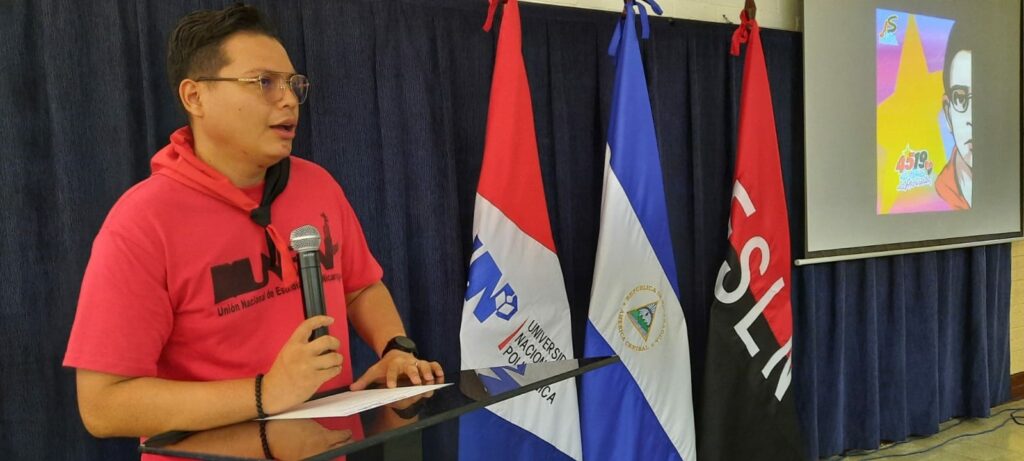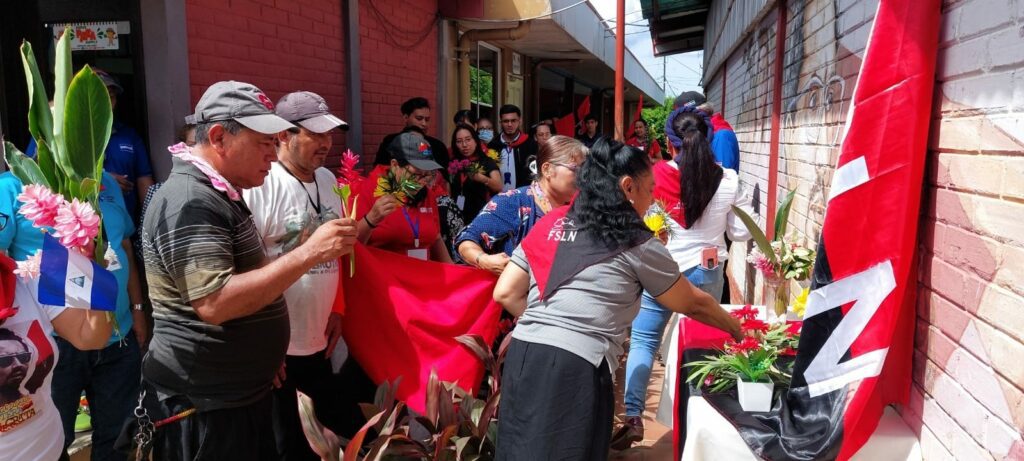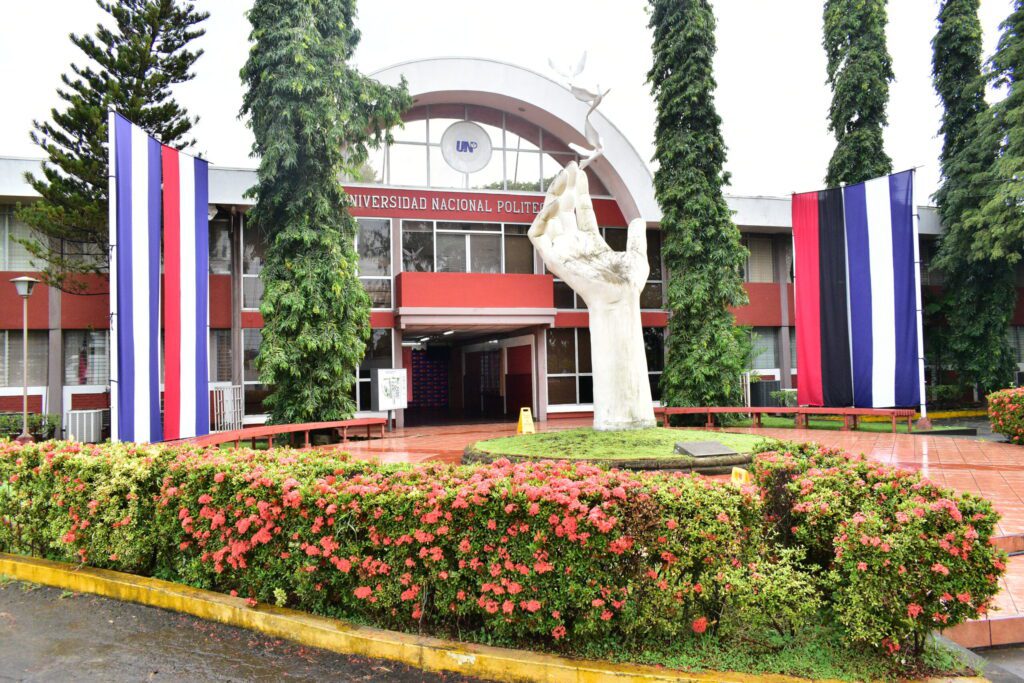The news about education being free at the confiscated universities divides opinions among the student body of the National Polytechnic University (UNP), formerly known as the Polytechnic University of Nicaragua (Upoli).
On the one hand, students who had not been able to access scholarships due to the rejection of the National Union of Students of Nicaragua (UNEN), the dictatorship’s repressive body in the universities, will now be able to study for free.
However, they also acknowledge that “the price to pay” for this free education is the total politicization of the academic programs and a decrease in the quality of education.
“They fired all the good professors,” the students complain.
“I feel that it is not worth studying because they fired all the good teachers,” says Scarleth, a UNP student from the Estelí campus, who had to abandon her studies because UNEN arbitrarily took away her scholarship in 2022.
Scarleth, originally from Somoto, started studying at Upoli in 2021. Because she was on her own, she found it difficult to pay the monthly tuition of $30, so she applied for a scholarship to continue studying.
“I had to chase after the UNEN people to get the scholarship. I ended up getting it in my second semester under the condition that I kept a high GPA,” she explains.
Scholarships removed

Although she always met the requirements to keep the scholarship, UNEN informed her that she would no longer have it in 2022, because the university allegedly had no budget and was in debt.
“They told me that there was no money for the Estelí campus because they had debts. Who they owed, I don’t know, they never explained anything to me,” she says.
When UPOLI was confiscated by the Ortega-Murillo regime in 2022 and replaced by the UNP, her hopes of getting the scholarship again were completely shattered. “They told me that the monthly fee dropped to $20 and that’s why they were no longer giving scholarships to anyone,” she says.
The denial of scholarships was enforced in all campuses of the institution in the different departments and also in the other confiscated universities, always under the excuse that the monthly fees had dropped to between 10 and 5 dollars.
However, 365 córdobas, the equivalent of 10 dollars, did not make a difference for Scarleth, who spent money on rent, food, transportation and other living expenses. After a hard year studying without a scholarship, she decided not to continue at the university in 2023 because of her financial situation.
Confiscated universities will be “free” starting this year

In November last year, the National Council of Universities (CNU), a body under the dictatorship, issued a statement saying that the confiscated universities would be free of charge starting in 2024.
Scarleth sees the opportunity to continue her studies, but she is also clear about the risks involved: “I want to resume classes this year and I can only do so at UNP. All the universities I wanted to go to closed or wouldn’t accept me because I was from UNP,” she says.
“I lost all of my grades when they made the switch to UNP because I was part of Upoli before. If I wanted to study at another university, I would have to start my degree from scratch. It’s all a mess,” she says.
She also states that after the cancellation of Upoli’s legal status, all her teachers were fired and replaced by professors loyal to the Ortega regime. “If I go in to study again, it’s not going to be the same,” she adds.
Fear among students of “worsening” conditions
Meanwhile, Susana, a student at the UNP Managua campus, says that the quality of education, along with the physical conditions of the campus, have considerably deteriorated since the change of administration.
“They told us that the university is going to be ‘free’, I think that’s disastrous. It is true that we are no longer going to pay a monthly fee, but the quality of education is also going to decrease,” says the student.
“Everything has gotten worse at UNP since these people have been running it. Upoli used to have a platform for students, today it doesn’t exist. You enter the website to see your grades and it doesn’t work” she explains.
“Last year I had classes in the dark because there were no lights in the classrooms, and since it was raining, we couldn’t see anything. The projector was useless, they didn’t invest in the university,” she continues.
According to her and several of her classmates, with the new fee these events will continue to occur. “You’re going to see that kind of thing happen more often,” she adds.
University services are “extremely time consuming”
Since the Ortega-Murillo regime confiscated the university, the other services offered by the campus such as scholarships and psychological care for students were reduced and there have been greater obstacles to accessing them.
“When I entered UNP I was not informed about the scholarship. I went through the process because I found out about it from another student, and it wasn’t until almost the end of the year in November that I was given the scholarship,” she says.
“All the processes that have to do with the university now are extremely time consuming. I used to receive the scholarship money at the cashier’s office and there were huge lines, when students used to get a bank account in BDF (Banco de Finanzas) and withdraw the money with their card,” she adds.
Although Susana still keeps her scholarship, with the change to full “free tuition” she doesn’t know if this implies a decrease in the amount she receives, which is 1,100 córdobas. CNU has also not informed if there will be any changes in this regard. However, she thinks that the measure will not be entirely beneficial for the student community.





